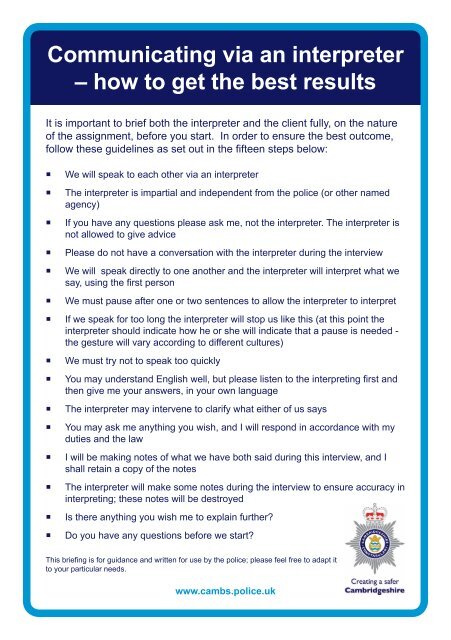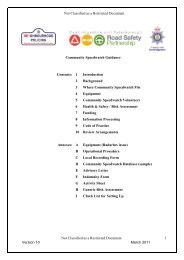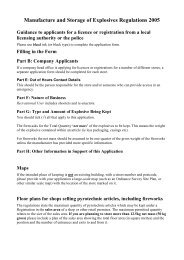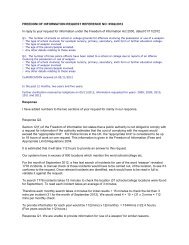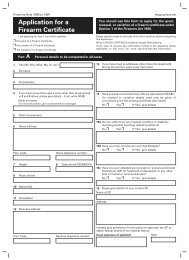Interpreter aide memoire
Interpreter aide memoire
Interpreter aide memoire
Create successful ePaper yourself
Turn your PDF publications into a flip-book with our unique Google optimized e-Paper software.
Communicating via an interpreter<br />
– how to get the best results<br />
It is important to brief both the interpreter and the client fully, on the nature<br />
of the assignment, before you start. In order to ensure the best outcome,<br />
follow these guidelines as set out in the fifteen steps below:<br />
•¡<br />
We will speak to each other via an interpreter<br />
•¡<br />
The interpreter is impartial and independent from the police (or other named<br />
agency)<br />
•¡<br />
If you have any questions please ask me, not the interpreter. The interpreter is<br />
not allowed to give advice<br />
•¡<br />
Please do not have a conversation with the interpreter during the interview<br />
•¡<br />
We will speak directly to one another and the interpreter will interpret what we<br />
say, using the first person<br />
•¡<br />
We must pause after one or two sentences to allow the interpreter to interpret<br />
•¡<br />
If we speak for too long the interpreter will stop us like this (at this point the<br />
interpreter should indicate how he or she will indicate that a pause is needed -<br />
the gesture will vary according to different cultures)<br />
•¡<br />
We must try not to speak too quickly<br />
•¡<br />
You may understand English well, but please listen to the interpreting first and<br />
then give me your answers, in your own language<br />
•¡<br />
The interpreter may intervene to clarify what either of us says<br />
•¡<br />
You may ask me anything you wish, and I will respond in accordance with my<br />
duties and the law<br />
•¡<br />
I will be making notes of what we have both said during this interview, and I<br />
shall retain a copy of the notes<br />
•¡<br />
The interpreter will make some notes during the interview to ensure accuracy in<br />
interpreting; these notes will be destroyed<br />
•¡<br />
Is there anything you wish me to explain further<br />
•¡<br />
Do you have any questions before we start<br />
This briefing is for guidance and written for use by the police; please feel free to adapt it<br />
to your particular needs.<br />
www.cambs.police.uk
Enhanced communication via an<br />
interpreter<br />
‘Enhanced communication via an interpreter ’ is a 45-minute film which<br />
highlights how to achieve the best outcome when communicating via an<br />
interpreter.<br />
Focusing on public sector scenarios, the film is broken down into modules,<br />
each covering a particular issue and setting the ground rules. Each module<br />
explains the dos and don’ts of communicating via an interpreter in such<br />
a way as to eliminate unlawful racial discrimination and promote equality<br />
of opportunity and good relations between people speaking different<br />
languages and belonging to different cultural groups.<br />
The film aims to remind public sector workers that a professional interpreter<br />
is trained, qualified, experienced, security-vetted and works in compliance<br />
with their professional code of conduct. It highlights the way that an<br />
interpreter can assist public sector workers to deliver a first-class service,<br />
focussing on the citizen’s needs and without distinction as regards their<br />
nationality, language or cultural background.<br />
The film can be viewed as a whole or the separate modules can be used<br />
individually, to illustrate particular issues. A short version of the film<br />
captures the key points and reiterates the main messages.<br />
To view the film, go to www.cambs.police.uk/help/professionalinterpreter/<br />
or for further information contact Katrina Mayfield, Project Manager at<br />
katrina.mayfield@cambs.pnn.police.uk


